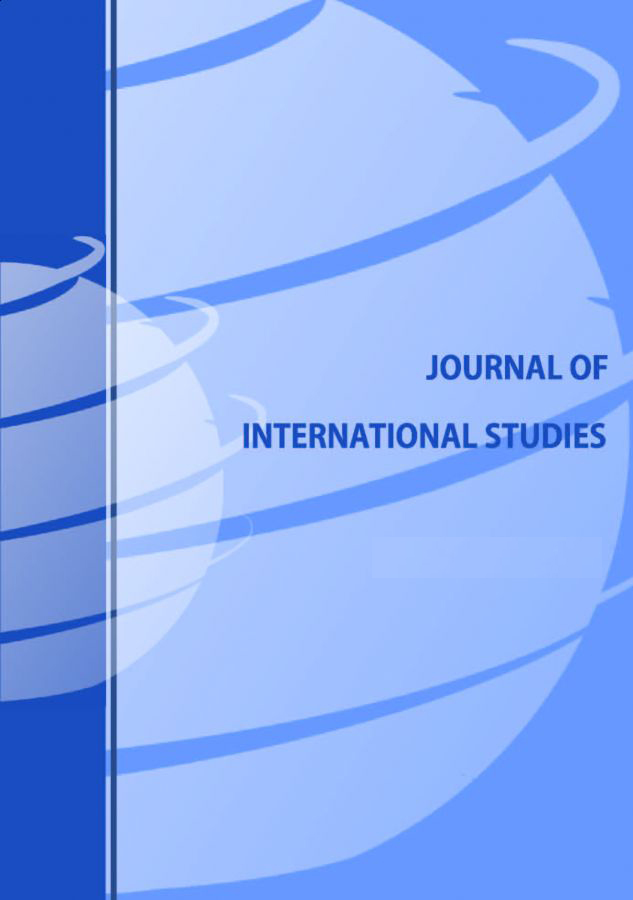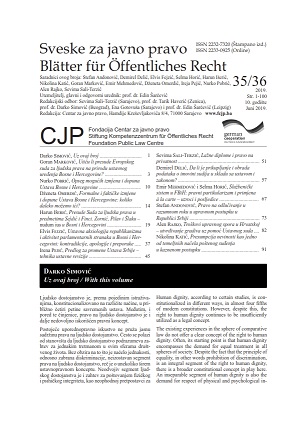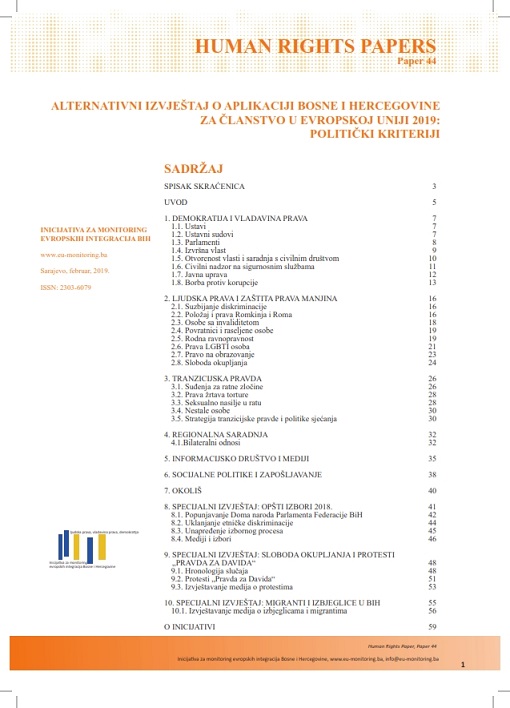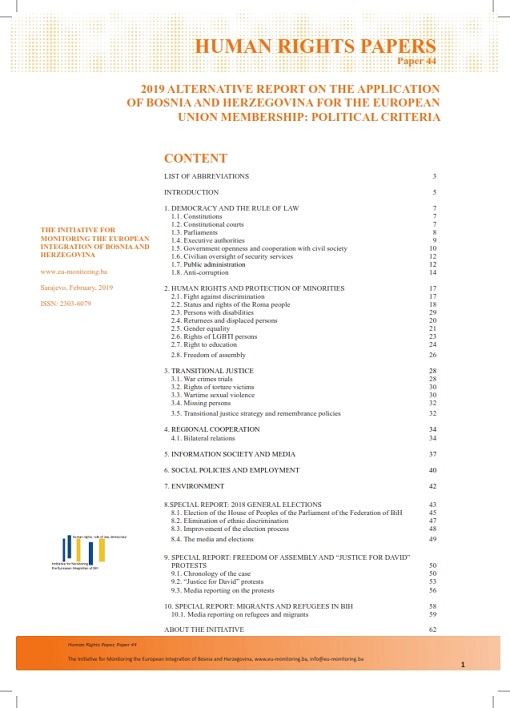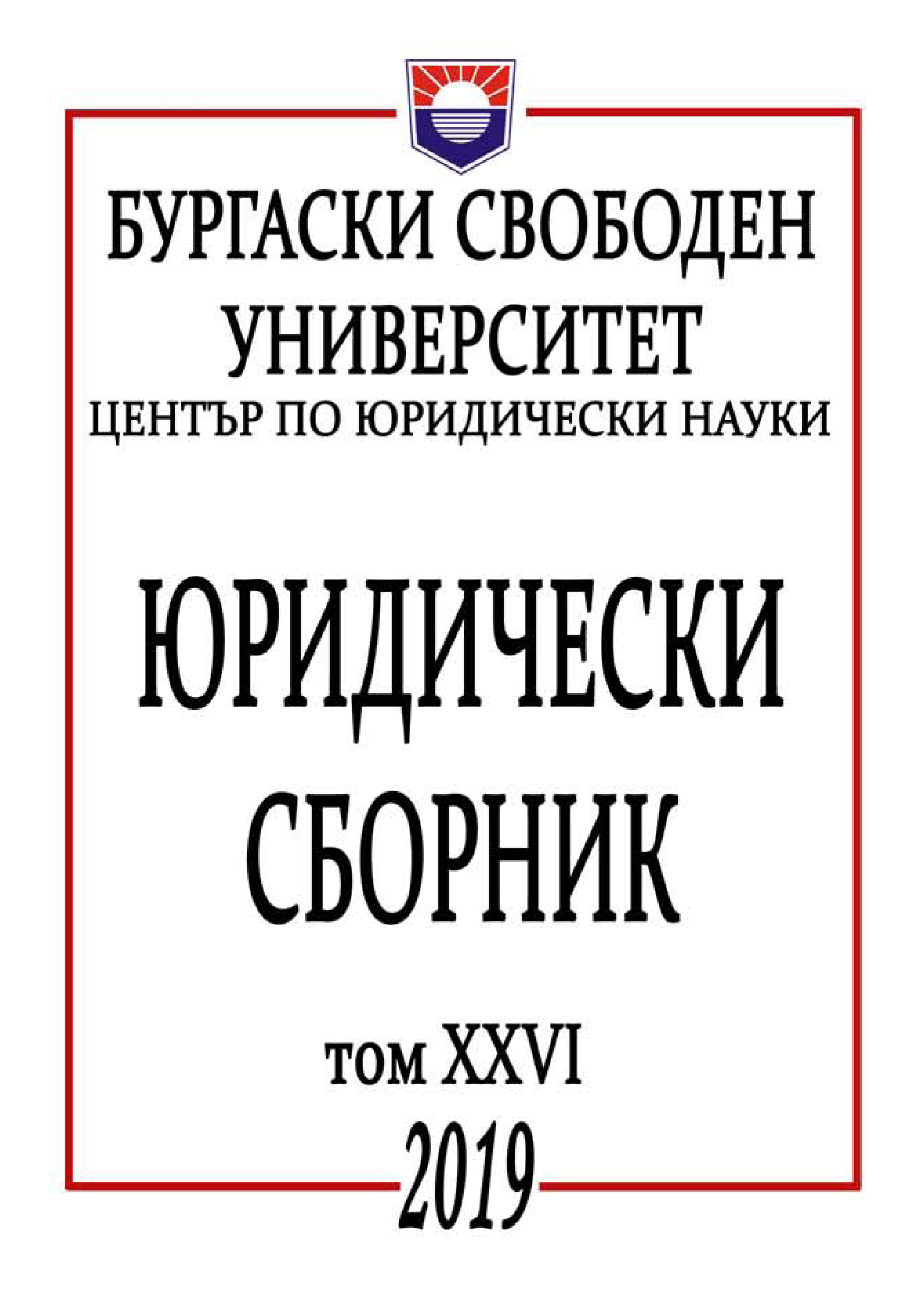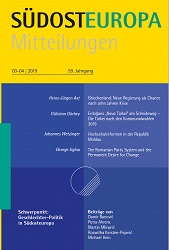Author(s): Adrijana Hanušić-Bećirović,Aida Daguda,Dajana Cvjetković,Dalila Bašić,Dalio Sijah,Damir Dajanović,Danira Karović,Darko Pandurević,Dragana Dardić,Dražana Lepir,Leila Bičakčić,Lejla Arnaut,Maida Zagorac,Milena Mastalo,Mirna Buljugić,Mirsada Bajramović,Nidžara Ahmetašević,Radmila Žigić,Rasim Ibrahimagić,Rea Adilagić,Senka Kulenović,Sunita Dautbegović-Bošnjaković,Tijana Cvjetićanin,Uglješa Vuković,Una Telegrafčić,Vildana Džekman,Vladana Vasić,Zinaida Ibrahimović,Zlatan Hajlovac / Language(s): English
Issue: 44/2019
The 2019 Alternative Report on the Application of Bosnia and Herzegovina for European Union Membership: Political Criteria is the result of the work of an informal coalition of forty (40) civil society organisations under the Initiative for Monitoring the European Integration of Bosnia and Herzegovina. The report primarily refers to the political criteria for EU membership, but also includes Special Reports on 2018 General Elections, the situation with respect to migrants and refugees in BiH, and on citizens’ protests in the Republika Srpska. In the European integration context, Bosnia and Herzegovina is constantly lagging behind other countries of the region and the lag is becoming evidently bigger with time. By the disorderly and untimely fulfilment of fundamental obligations in the European integration process, Bosnia and Herzegovina fails to demonstrate a true commitment to reform processes on the European path and for now keeps such a commitment at a declarative level. Three years have passed since the submission of the application for the membership of Bosnia and Herzegovina in the European Union, whereas three and a half years have passed since the Stabilisation and Association Agreement between Bosnia and Herzegovina and the European Union. From that time to the present day, Bosnia and Herzegovina did not manage to put in function all the bodies envisaged by the Agreement, as the Stabilisation and Association Parliamentary Committee has not yet adopted its Rules of Procedure. The process of answering the European Commission Questionnaire, presented to potential candidate countries, was only coming to an end in the time of the finalisation of this Report. The coordination mechanism, which was supposed to establish a functional decision-making process in the European integration, proved inefficient and remains equally non-transparent as the process of its establishment. [...]
More...


